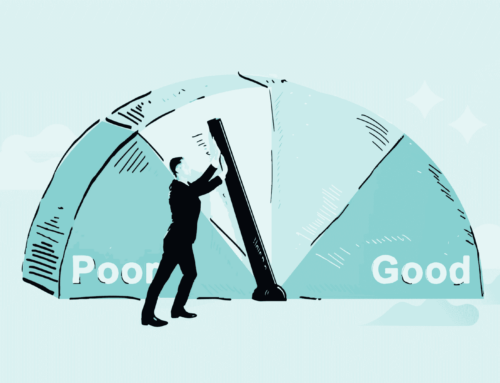There are many hurdles an immigrant faces when moving to a new country. Most immigrants move abroad to build a new life, which typically includes large purchases such as a home, a car, and more.
The co-founder of ImmiSearch, Eva Li, shared her experiences with credit building and misconceptions about building credit. “My upbringing and culture don’t necessarily encourage me to do things that help build credit.” Here are 3 major misconceptions about building credit Eva shared in hopes to help new Canadian residents navigate their financial journey in Canada.
Myth 1 – Borrowing money is bad
Eva was born and raised in Hong Kong for most of her life. Taking out loans is frowned upon in our culture. This means you have poor financial standing.” Taking out loans and increasing your credit card limit improve your credit score. They help you build a stronger credit history by showing that you can pay your bills on time. On the other hand, if someone always uses cash, one has no credit history. This will be difficult for them to build credit because lenders cannot evaluate their creditworthiness.
Eva noticed a huge boost in her credit score after taking out a mortgage. It is considered bad to be in debt in Chinese culture. However, taking out loans is a great way to build credit. In fact, your credit score determines how much you can afford to borrow for a mortgage. If your credit score is higher, the banks have more incentive to lower their interest rates for you to win your business.
Myth 2 – I can apply for permanent residence later
You should apply for permanent residence as soon as you become eligible, even if your PGWP or work permit is still valid. When you are not a PR or Canadian, the services banks offer you are limited, including credit types, loans and more. When Eva first got her credit as an international student, she had to put in at least $5,000 in her chequing account to be able to use her credit card. She had to wait until becoming a permanent resident to use this money. Then she could liquidate the $5,000, and the banks were a lot more accommodating about increasing her credit card limit.
Why can’t international students and foreign workers enjoy the same financial benefits as PR and Canadian? Because of your temporary status, bankers are less confident about lending you money. It could also mean you will stop using their financial services sooner than regular PR or Canadian.
Therefore, becoming a Canadian permanent resident has a lot of benefits. You will be able to access more credit card options and different financial services.
Want to know how to become a PR? ImmiSearch is an immigration tech company that helps immigrants maximize their immigration success rates and makes immigration simple, quick and affordable. ImmiSearch provides immigrants with the resources, guidance, and personalized assistance from an immigration consultant to maximize success rates. You can use their free Express Entry assessment tool and CRS score calculator to check your eligibility.
Learn more about how ImmiSearch’s service works.
Myth 3 – Stable income and on-time payments mean excellent credit?
Your salary does not guarantee an excellent credit score. As Eva explained, her salary has nothing to do with her credit score. Her credit score remains the same even after her compensation has been increased several times. Her credit score improved only after she obtained a credit card with a higher limit.
Your credit score is affected by your credit utilization. Credit utilization is the ratio of how much credit you have to how much you use. Let’s say you have a $1,000 credit card balance and a $2,000 credit limit. In this case, your credit utilization ratio is 50%. This ratio is based on all of your credit products. In other words, increasing the credit limit to $4,000 results in a 25% utilization ratio, contributing to a higher credit score.
Similarly, suppose you pay all your bills on time. In that case, your credit score will not necessarily improve unless you have previously missed payments. Your credit utilization will affect the maximum credit score you can obtain. Therefore, it is best to increase your credit limit to lower your credit utilization as much as possible.
Take Control of Your Credit Score & Financial Wellness
In the array of to-do’s in starting life in a new country, amongst budgeting, staying on top of a new idea such as “credit” or “credit building” can become overwhelming easily. Have a look at MyMarble‘s Boost, a unique product that help thousands of Canadians increase credit scores while rebuilding healthy financial habits. As new immigrants, it can be a challenge to obtain loans of any kind with reasonable interest rates. Since Boost utilizes a loan repayment structure that reports to the credit bureaus every month, which increases your credit score every time you make a payment; it shows as a new positive trade-line on their fresh credit report. Boost will really benefit those who are eager to accelerate their credit building in Canada and begin toward their next financial milestone!






